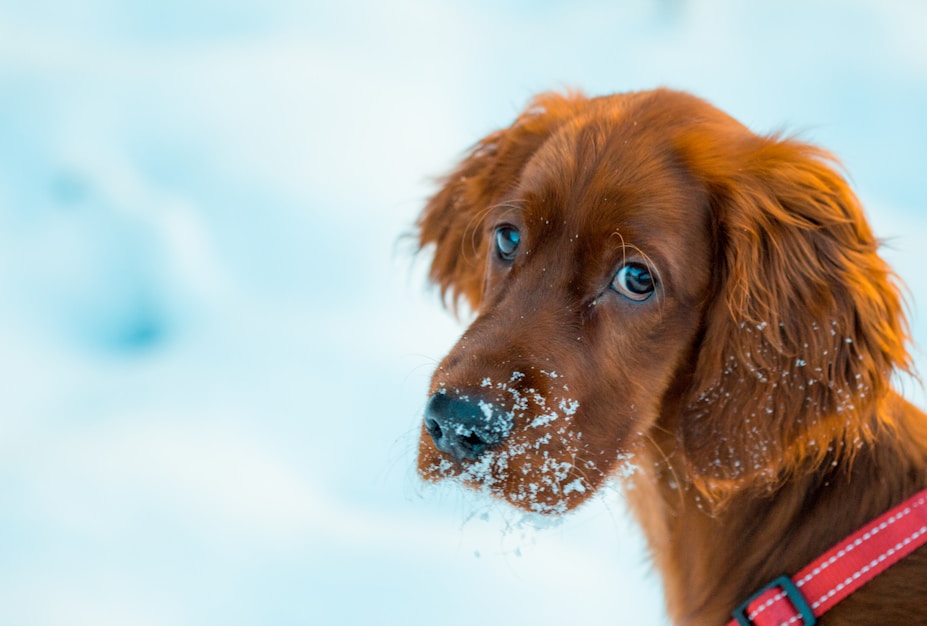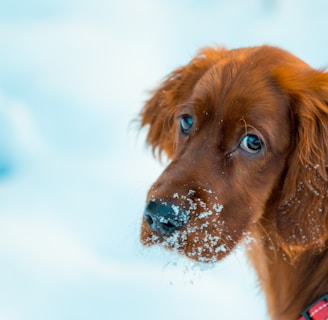Why Dogs Eat Poop and How to Stop It
While the act of dogs eating poop may be puzzling and off-putting to us, it is essential to approach the issue with understanding and patience.
DOG TRAININGDOG HEALTH
12/18/20233 min read


The Curious Case of Coprophagia
It may come as a surprise to many dog owners, but the act of dogs eating poop, scientifically known as coprophagia, is a relatively common behavior. While it may be perplexing and even repulsive to us humans, there are both behavioral and physiological reasons why some dogs engage in this habit.
Behavioral Factors
One of the primary reasons why dogs eat poop is rooted in their natural instincts. In the wild, dogs and their ancestors would often consume feces as a means of survival. This behavior served to keep their living areas clean and reduce the risk of attracting predators.
However, in a domestic setting, this behavior is no longer necessary for survival. So why do some dogs still engage in coprophagia?
There are several behavioral factors that can contribute to a dog's poop-eating habits:
Curiosity: Dogs are naturally curious creatures, and their exploration can sometimes lead them to experiment with eating poop.
Boredom: Dogs that are not provided with enough mental and physical stimulation may resort to engaging in behaviors such as eating poop out of sheer boredom.
Anxiety or stress: Dogs that experience anxiety or stress may exhibit coprophagia as a form of self-soothing or as a displacement behavior.
Attention-seeking: Some dogs may resort to eating poop as a means of getting attention from their owners, even if it is negative attention.
Physiological Factors
In addition to behavioral factors, there are also physiological reasons why dogs may eat poop:
Dietary deficiencies: Dogs that are not receiving adequate nutrition from their diet may be inclined to seek out alternative sources of nutrients, including feces.
Enzyme deficiency: Some dogs may have an enzyme deficiency that affects their ability to properly digest food, leading to an increased attraction to feces.
Medical conditions: Certain medical conditions, such as malabsorption disorders or parasites, can cause dogs to have an increased appetite for feces.
Addressing the Issue
If you find yourself with a dog that has a penchant for poop, it is important to take steps to discourage this behavior. Not only is it unsanitary and potentially harmful to their health, but it can also be a source of embarrassment for dog owners.
Behavioral Modification
One of the most effective ways to stop a dog from eating poop is through behavior modification techniques. Here are some strategies to consider:
Supervision: Keep a close eye on your dog when they are outside and promptly clean up any feces to prevent access.
Positive reinforcement: Reward your dog with treats and praise when they exhibit appropriate behavior, such as ignoring feces or responding to commands.
Redirect their attention: Engage your dog in interactive play or provide them with puzzle toys to keep their mind occupied and reduce boredom.
Training and obedience: Enroll your dog in obedience classes to establish clear communication and reinforce desirable behaviors.
Consult a professional: If your dog's coprophagia persists despite your efforts, it may be beneficial to seek the guidance of a professional dog trainer or animal behaviorist.
Dietary Changes
Ensuring that your dog is receiving a balanced and nutritious diet is crucial in addressing coprophagia:
High-quality dog food: Opt for a premium dog food that meets your dog's nutritional needs. Consult with your veterinarian to determine the best diet for your dog.
Supplements: In some cases, your veterinarian may recommend specific supplements to address any dietary deficiencies that may be contributing to coprophagia.
Products to Discourage Poop-Eating
There are also products available on the market that can help make poop less palatable to dogs:
Commercial deterrents: There are commercial products, such as sprays and additives, that can be applied to feces to make them unappealing to dogs.
Pineapple or pumpkin: Adding a small amount of pineapple or pumpkin to your dog's diet can make their poop taste less appealing.
Medical Evaluation
If your dog's coprophagia persists or is accompanied by other concerning symptoms, it is important to consult with your veterinarian. They can perform a thorough examination and run any necessary tests to rule out underlying medical conditions that may be contributing to the behavior.
Conclusion
While the act of dogs eating poop may be puzzling and off-putting to us, it is essential to approach the issue with understanding and patience. By addressing both the behavioral and physiological factors that contribute to coprophagia, and implementing appropriate strategies such as behavior modification and dietary changes, you can help your dog overcome this habit and ensure their overall well-being.
Subscribe to our newsletter
HEALTHY DOGGOS 2023 COPYRIGHT
